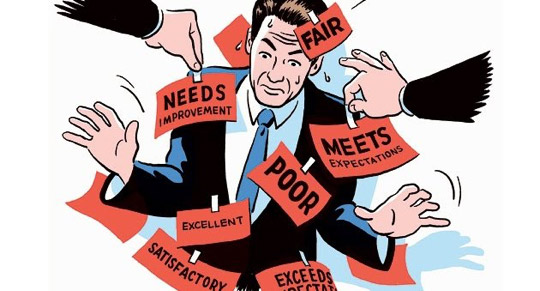Let’s Finally Bury the Annual Appraisal

Can you recall ever receiving an insightful and beneficial annual appraisal? Can you remember giving an appraisal where you made constructive comments that were well received and lead to a meaningful change in performance? No, me neither. At best they have been a civil and professional process with both parties relieved the charade is over for another year. Marginally better than the annual medical check up, but equally quickly forgotten and ignored.
How did we ever get into this mess? There is no definitive start date, but annual appraisals first began appearing after the Second World War, as an attempt to decide whether or not the pay of an individual employee needed increasing or reducing.
In the 1960’s & 70’s, the potential usefulness of appraisals as a tool for motivation and development was gradually recognised.
The term “performance management” was coined. Then the 1980’s & 90’s brought about MBO, or management by objectives. Finally in the 2000s, performance management came online,
creating its own set of problems. This included the ability to conduct evaluations online with surveys and multiple reviewers, leading to a whole new market in 360-degree feedback products.
Much of the momentum for these changes was fuelled by consultants declaring it to be best practice, along with some high profile companies asserting that this was what made them different. Best known was GE with its “rank & yank policy”, in which employees were ranked against each other, and then they terminated those people at the lowest end of the ranking.
Throughout these developments there has always been rumbling discontent with the whole process. Yet very few organisations have been brave enough to break the annual cycle. So what is it that’s really broken and what should we do next?
The concept of reviewing performance is well understood and deeply ingrained in us. Just look at the millions who are on line judges and critics. Whether it is in sport, in the arts, in assessing new products and services – we simply love a review.
What is wrong is not the review itself. It is the timing. Today everything is available instantaneously. Why should employees have to wait so long to hear how they are doing? With Millennial’s expected to work at a company for less than 3 years they will typically be out of one job and onto the next before the appraisal cycle has even come round again. And then there is the sheer amount of time the whole process consumes, especially for managers and HR departments.
Time also makes it makes it much harder for managers to appraise performance some 6-12 months after the actual event. Leave it just a few days and you forget the finer detail. Longer than that and the full picture becomes harder to recall. Research has shown that people forget 50-80% of what they’ve learned after one day and 97-98% after a month.
Subconsciously we all aware the process takes too long and is affected by poor memory recall. To compensate for this managers tend to be too soft, afraid to give blunt or negative feedback. People hold back in their criticism knowing that the words will linger for a whole year. This manifests itself in the language of appraisals being littered with unhelpful phrases like “keep it up” or “needs improvement”.
Worst of all there is still the dreaded process of ranking, which manifests itself in notorious bell curves. Force fitting individuals and teams into quotas is inflexible, contentious and dehumanizing. It is also counter to anything we know about teamwork.
All of this for a process that no one enjoys and rarely leads to positive change. In fact the exact reverse is sometimes achieved. New research has shown that annual performance appraisals can actually damage your business, with over 33% of reviews decreases employee performance rather than improved it.
But the tide may at last be turning. Over the last 18 months a number of big firms have finally announced they are ending their annual appraisals. Most strikingly the list includes the likes of Deloitte and Accenture, who now admit the whole process is outdated, time consuming and unproductive. This is from the same companies who have been charging fat fees to help install annual appraisal systems. What chance of a refund?
Even more positively no one has come up with a brand new way of doing things. Instead businesses are reverting to the tried and tested method of manager’s real time feedback. The value of this is much understated. Given correctly and on a timely basis it is a very powerful tool for making people feel good about themselves and their job. Just as strongly even when giving critical / challenging feedback, it can be transformative, helping the recipient to more quickly address their weaknesses and become stronger as a result.
All of this leads me to a few simple recommendations.
- Scrap the annual review process.
- Hire only managers who are able to manage, and who are good at telling people how they are doing.
- Give positive feedback in writing. Share the praise with a wider group.
- Give negative feedback face to face. The only time it ever needs to be in writing is when part of a disciplinary process. Share the criticism on a need to know basis.
- Deliver all feedback on a timely basis. Remember it is rarely given too quickly and is invariably too late.
The time has come to bury the appraisal and to readopt these proven, immediate ways of improving performance.

